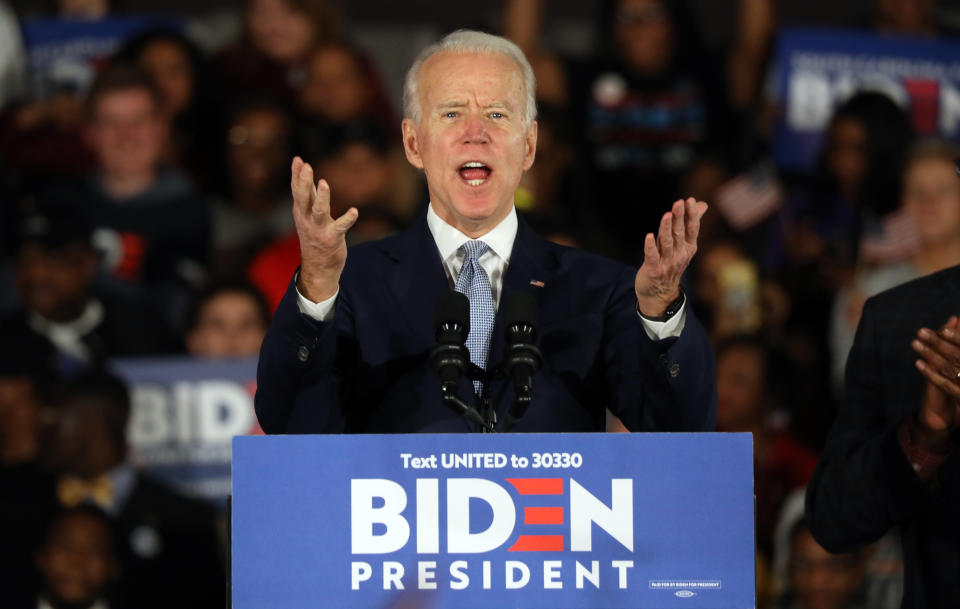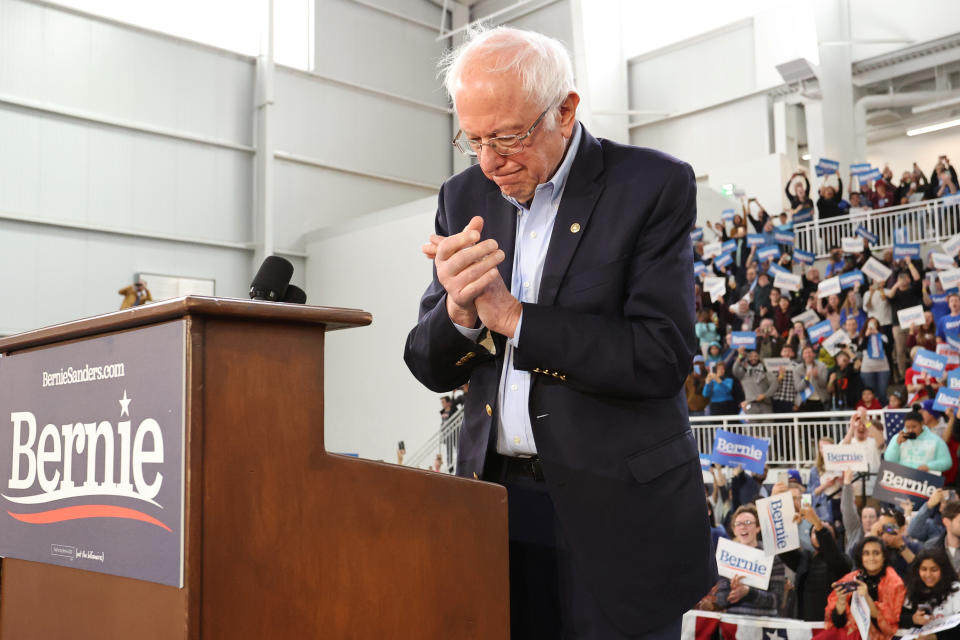What is Super Tuesday, and why does it matter?
The biggest day of the Democratic presidential primary so far will be Tuesday, March 3. That’s because it’s the day 14 states will be holding nominating contests simultaneously. This is why it’s called “Super Tuesday.”
Here’s a guide to the critical election day to answer some questions that voters might have.
What is Super Tuesday?
It’s perhaps the single most important day in the presidential nominating contest before the Democratic National Convention this summer.
Roughly a third of all delegates for July’s convention will be at stake on Super Tuesday. It’s also a key test of each Democratic candidate’s national appeal, because of the sheer number of states involved.
Why is it important?
It’s a critical day for the candidates, who have the chance to grab a share of the 1,357 delegates who can be won on Super Tuesday. To put that number in perspective, the first four nominating contests in Iowa, New Hampshire, Nevada and South Carolina were worth only 155 delegates in total.
A candidate needs to win 1,991 delegates to go into the Democratic convention with a majority. So while it’s not possible to win the Democratic nomination on Super Tuesday alone, it will show which candidates have a shot and perhaps force some others out of the race.
That is especially significant this year given that there are still several Democratic candidates who could potentially win the nomination. Joe Biden, in particular, is coming off a big win in South Carolina, while Bernie Sanders had strong performances in the first three contests and is leading the polls in several key Super Tuesday battlegrounds.

With voting contests taking place across the country, Super Tuesday also tests a candidate’s national appeal, as candidates must court a wide swath of voters from a group of geographically and demographically diverse states.
Historically, candidates who perform well on Super Tuesday generally go on to clinch their party’s nomination, and those who don’t are forced out of the race. In 2016, Hillary Clinton and Donald Trump won the majority of delegates on Super Tuesday, and each went on to secure their respective party’s nomination.
While some Republicans will also have the chance to vote on Super Tuesday, President Trump faces only token opposition for the GOP nomination. The only major candidate facing him is former Massachusetts Gov. Bill Weld, and he is not considered a serious contender.
Which states vote on Super Tuesday?
This year, Alabama, Arkansas, California, Maine, Massachusetts, Minnesota, North Carolina, Oklahoma, Tennessee, Texas, Utah, Vermont and Virginia will participate. American Samoa, meanwhile, will be holding caucuses.
Poll closing times vary by state. Vermont will finish earliest with polls closing at 7 p.m. ET, while California’s will close at 11 p.m. ET.
Diverse and overwhelmingly Democratic California, the most populous state in the U.S., will have the most delegates at stake with 415, about a third of those to be awarded on Super Tuesday.
But don’t expect full results from the Golden State immediately — mail-in ballots need only to be dropped in the mail by March 3 and will likely take days to count. In 2016, it took a month for California’s presidential primary votes to be officially counted, although it’s likely that we’ll have a sense of who did well in the state in the hours after the polls close.
What should I watch for on Super Tuesday?
Will Michael Bloomberg’s Super Tuesday gamble pay off?
The billionaire and former New York City mayor skipped the first four contests. Instead, he has poured a massive amount of his self-funded campaign resources into Super Tuesday states. If he fares poorly after spending close to $200 million in TV ad spending in the Super Tuesday contests, it becomes harder to imagine how he could possibly become the nominee.
Will a moderate alternative to Bernie Sanders emerge?
Despite Biden’s big win in South Carolina on Saturday, the Vermont senator has emerged as the frontrunner for the nomination. He has benefited from a loyal fan base, but if Democrats who are wary of the democratic socialist senator begin to coalesce around a clear alternative, the field could shrink.
Biden has pitched himself as the more moderate and “electable” alternative to Sanders. Meanwhile, Elizabeth Warren has tried to position herself as the candidate who can bring together more moderate voters as well as the progressives who have so far rallied around Sanders.

Will home turf advantage pay off?
Massachusetts, the state Warren represents in the Senate, will be one of the states in play on Super Tuesday. After a string of disappointing finishes in the first four contests, however, Warren will have to fend off Sanders to claim victory in the Bay State.
Sanders’s Vermont will also be voting on Super Tuesday. If a candidate can’t win in their home state, it will be hard for them to convince voters elsewhere that they have what it takes to win the nomination.
What are the other big voting dates remaining on the primary calendar?
On March 10, Idaho, Michigan, Mississippi, Missouri, North Dakota and Washington all vote, with a total of 352 delegates at stake. A week later, St. Patrick’s Day brings the race to Arizona, Florida, Illinois and Ohio with a total of 577 in play. The next major primary date isn't until April 28, when election day comes to six states, including delegate-rich New York and Pennsylvania.
_____
Read more from Yahoo News:



